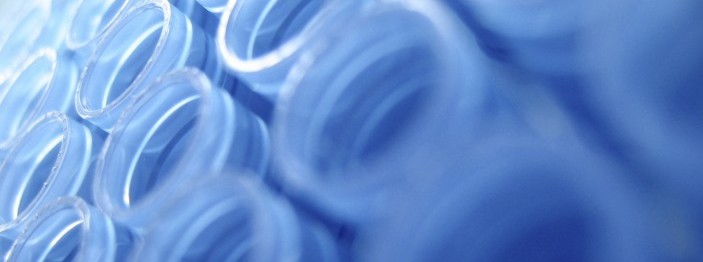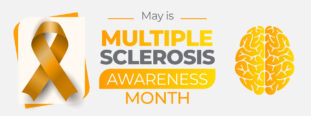Psoriasis drug effective in multiple sclerosis
BG-12, an oral medication similar to a drug used to treat psoriasis in Germany for the past decade, appears to be effective in multiple sclerosis (MS), according to the results of two new studies. BG-12 is a formulation of a drug called DMF (dimethylfumarate). The two phase III studies, called DEFINE and CONFIRM, both showed that treatment was more effective their comparators.
In DEFINE, two doses of BG-12 (240 mg either twice or three times a day) were compare to a placebo (Gold and colleagues. N Engl J Med 2012;367:1098-1107). The annualized relapse rate (the number of relapses averaged over the two-year study) was 0.17 and 0.19 relapses with the two BG-12 doses (about 1 relapse every 5-6 years) compared to 0.36 with placebo (1 relapse every 3 years). So treatment reduced relapses by about 50%.
In the CONFIRM study, the same two doses of BG-12 were used but a third group received glatiramer acetate (Copaxone) as a comparator (Fox and colleagues. N Engl J Med 2012;367:1087-1097). The annualized relapse rates were 0.22 and 0.20 with the two BG-12 doses, 0.29 with Copaxone, and 0.40 with placebo. There was no significant difference between low-dose BG-12 and Copaxone with respect to relapse rates and some MRI measures, but the higher BG-12 dose was generally more effective.
In both studies, the most common side effects with BG-12 were flushing and stomach problems (diarrhea, nausea, stomach pains). Other side effects reported in the phase II study were headache, fatigue and feeling hot (Kappos and colleagues. Lancet 2008;372:1463-1472).
BG-12 is derived from Fumaderm, a drug used in Germany to treat psoriasis. Although it’s the most commonly used oral psoriasis drug in the country, its use is often limited by its side effects, such as nausea, vomiting and flushing. That drug is not supposed to be taken for longer than six months at a time.
BG-12 was reformulated to make it easier on the stomach after the drug was acquired by Biogen/Idec (which also manufactures Avonex and Tysabri). As with other new drugs, the safety of long-term treatment hasn’t been determined.
In the body, the active ingredient of BG-12, DMF, is eliminated from the body in about an hour. But it first forms an active metabolite called MMF (monomethyl fumarate), which stays in the body about a week.
How BG-12 reduces inflammation in MS isn’t entirely clear. The most common theory is that it interacts with a biochemical pathway (called NF-kappa-B) to reduce the expression of certain genes that regulate inflammation. In effect, this turns down the thermostat for the production of chemicals involved in promoting inflammation (for a review see Moharregh-Khiabani and colleagues. Curr Neuropharmacol 2009;7:60-64; free full text at www.ncbi.nlm.nih.gov/pmc/articles/PMC2724664/pdf/CN-7-60.pdf).
Biogen has submitted BG-12 for approval for the treatment of relapsing-remitting MS in the U.S., Canada and Europe. That approval is expected within the next 6-9 months. At the moment, fingolimod (Gilenya) is the only oral medication available for MS. Other oral medications expected to be approved soon are teriflunomide and laquinimod.
Share this article
Facebook Twitter pin it! Email
Related Posts
Back





